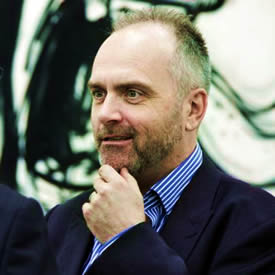
Chris Dalton
Country Of Origin: United Kingdom
Degree: PhD Management Learning and Leadership, 2013
Lecturer, University of Reading, Henley Business School
Working in a business school there is only so far one go without a doctorate, so doing a PhD has been an important part of my own personal development. I chose Lancaster in part because it was part-time, and in part because it would be study away from my home university (Reading).
Undertaking a research degree where you also work creates many internal conflicts, so being able to have an unambiguous identity at another institution was important. The primary reason for choosing Lancaster, though, was its reputation in the area of Management Learning and the chance to work with experienced academics in my field.
It is a facet of any PhD that the learning environment is to some extent a bubble of your own making. When you are remote from the campus an even more pronounced hermit culture can set in. The conferences and meetings arranged by the department helped counter this tendency, and I certainly encourage everyone studying part-time to attend. The face-to-face contact and the inevitable discussions with other PhD candidates, full and part-time, is part of your development. You cannot do this thing entirely on your own, though it does sometimes feels that you ought to.
Doing a PhD is a long, drawn-out apprenticeship to demonstrate – after it is completed – that you have found your voice and can be left to your own devices as a researcher. You’re not always aware that this is so when in the thick of it, but the demands of rigour from the academics running the programme and providing supervision and examination are well thought-through, consistent and – above all – well-intentioned.
In the end, all successful PhDs know that the biggest barrier to completion is themselves. Those who have yet to finish must live with a level of uncertainty, doubt and risk that can feel like a real stretch of their capacity. This was without question the hardest aspect for me.
The focus of my research remained remarkably true to one particular view of the world that I find intriguing. However, it took a long time for this interest to find a home in an original contribution. I think that identification of the defensible contribution is a key moment in the evolution of a thesis. I wanted to do some research that would challenge some of the rather superficial statements about reflection in personal development and learning in management education. I wanted to propose a more systemic and less mechanistic explanation of the process of reflection.
I think that I managed to get there, but not directly in a highly empirical or discursive route. Instead I chose to explore the limitations of the Critical Realist perspective in research. The strongest contribution ended up located in that discussion; explanation of generative causal mechanisms which encompass more than the psychological and sociological.

